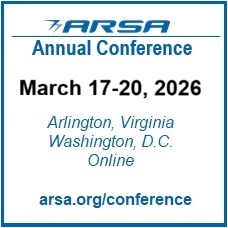Aviation Maintenance Industry is Healthy, ARSA Tells Congress, But Threats Loom
Aviation maintenance industry companies are generally optimistic about the economic outlook for 2017, but wary of the risk of new regulatory burdens and confronting a chronic shortage of skilled technical workers. That message was delivered by ARSA to members of the House Transportation & Infrastructure Committee in a statement for the record of a March 8 aviation subcommittee hearing.
ARSA told committee members the industry has a massive economic footprint in the United States, employing more than 277,000 people who generate $44 billion in annual economic activity.
Repair stations are generally optimistic about the health of their industry and prospects for 2017, ARSA Executive Vice President Christian Klein said in the statement. Fifty-eight percent of the respondents to ARSA’s 2017 member survey said they expect their revenues and markets to grow in the coming year; fewer than seven percent expected contraction.
Klein also told committee members that government intrusion through overregulation is perceived by maintenance providers as a major threat to the industry. ARSA urged lawmakers to carefully consider whether proposals that impose new regulations or mandates improve safety and whether the additional regulatory burden makes sense considering the totality of existing requirements.
The ARSA statement also highlight the ways in which workers and companies in almost every state benefit from international trade in aviation maintenance services. More than 1,400 U.S. facilities are approved to work on European-registered aircraft and related components. ARSA survey respondents indicated that, on average, a quarter of company revenues is derived from work done under a bilateral aviation safety agreement (BASA).
ARSA told the committee that repair stations consider the technical talent shortage to be the biggest challenge confronting the industry. Thirty-one percent of ARSA survey respondents reported having “a lot of difficultly” finding qualified workers to fill technical positions over the past two years; half of respondents reported having “some difficulty” and fewer than one-fifth said they had no difficulty. Half of ARSA survey respondents reported having open, unfilled technical positions.
Finally, ARSA highlighted the need to invest in America’s airports, saying that Congress must look for fiscally-responsible ways to expand America’s airport capacity to improve passenger mobility, enhance system efficiency and ensure the continued growth and health of the aviation industry.
To read the entire statement, visit: arsa.org/wp-content/uploads/2017/03/ARSA-AviationSubComHearingStatement-20170308.pdf.








